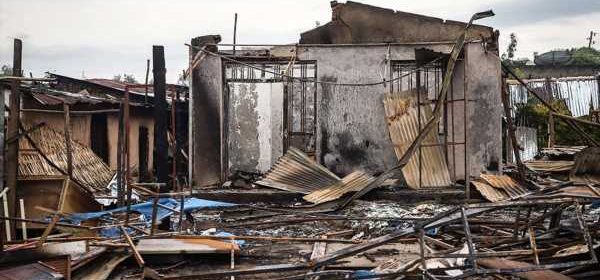Ethiopian Group Seeks Probe of Violence After Musician’s Killing

Deadly protests and attacks in Ethiopia in which over 100 people died after the assassination of prominent musicianHachalu Hundessa constitute crimes against humanity and require further investigation, according to an independent human rights body.
Hachalu was a popular voice during protests by the Oromo, Ethiopia’s biggest ethnic group, for reforms in the ruling Ethiopian People’s Revolutionary Democratic Front that led to the appointment of Prime Minister Abiy Ahmed in 2018.
The singer-songwriter’s shooting on June 29 led to riots in the capital Addis Ababa and parts of Oromia. In the three days that followed groups broke into houses armed with “knives, stones, flammables, electric cables, sticks, axes and machetes; beat, injured and killed people in a gruesome manner, including through torture and beheading”, the Ethiopian Human Rights Commission said in a statement released Friday.
The attacks, which mainly targeted Amharas and Orthodox Christians, were ‘widespread and systematic’ and killed 123 people, injuring at least 500, displaced thousands and destroyed property, the rights body said in the statement. At least 76 of those deaths were caused by government security forces, it said.
| Read more: |
|---|
| Protests Erupt in Ethiopia After Popular Musician Killed (2) |
| Ethiopia Makes Arrests in Singer’s Death That Sparked Riots |
| Ethiopia Files Terrorism Charges Against Opposition Leader Jawar |
“The overall conduct carried out by the attackers who were organized in groups, and the result thereof, is not a simple criminal act but a crime against humanity which is an atrocity crime and a grave violation of human rights,” the commission said.
In some areas local authorities were unwilling and did not respond and “sometimes, police stood watching as the attacks took place,” the rights body said. Following the protests, prominent opposition members including Jawar Mohammed and Eskinder Nega were arrested.
The proportionality of the force used by security forces ‘is highly questionable’, the report says referring to people killed with bullet wounds to the head and chest or back as well as bystanders, elderly people trying to mediate and police officers who lost their lives. There is so far no investigation on the use of force by security officers, it said.
Ethiopia has been marred byviolence across the country over the past two years, including sporadic attacks in Benishangul-Gumuz that killed over 200 people in December and a military conflict between the federal and regional authorities in Tigray. Ethiopia is expected tohold its delayed general elections on June 5.
Source: Read Full Article
